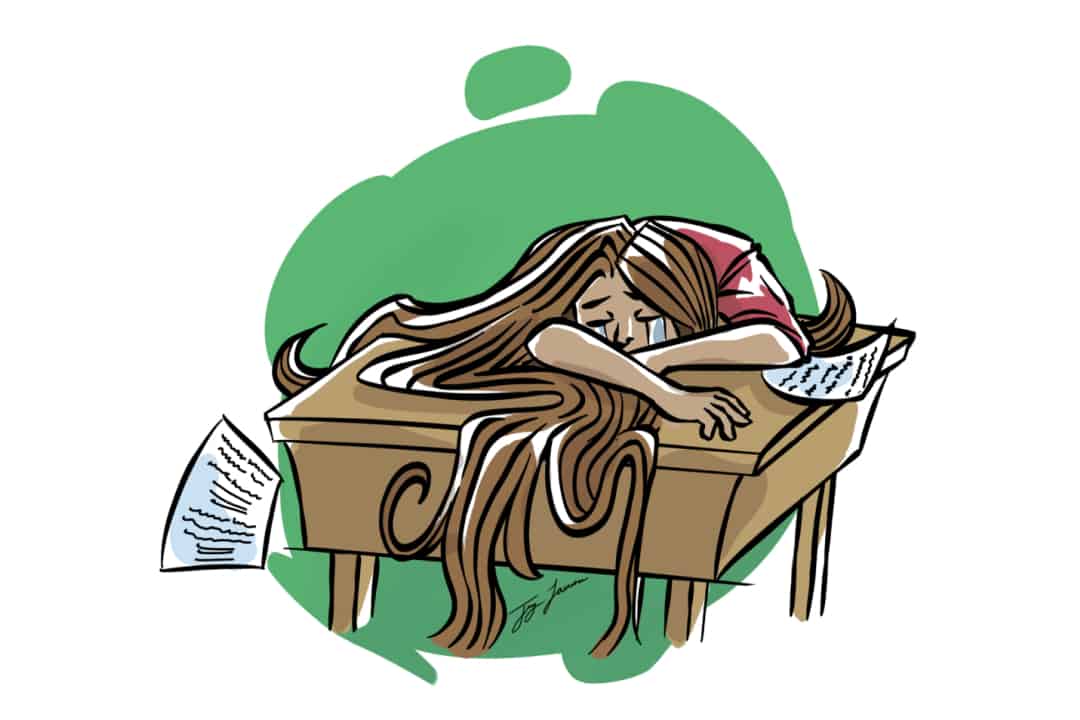“I only live to repay my debt to my parents for raising me.”
These words crackled out of my phone speaker halfway through my first semester at UTSC.
For me, 2021 had been another formative year lost to the COVID-19 pandemic — the year I graduated high school via live stream and began university via Zoom call. Drowning in stress from the seemingly endless essays and readings that an English degree required, I called a close high school buddy, wanting to hear something that would make deadlines and grades meaningful. Instead, he said that.
Compared to my friend, I was doing university on easy mode. My English program doesn’t require a minimum average, so everything is essentially pass/fail. His ultra-competitive statistics program turned grades into gospel. Also, no sleep until tomorrow arrives.
We’re both second-generation immigrants from Agincourt, a predominantly Asian immigrant community in Scarborough. My dad is Egyptian and my mom is Chinese — I’m a racial Rorschach test. My friend is fully Chinese. We know the stereotypes about Asian parents — fiercely pushing their kids to their maximum potential through rigorous after-school math, science, and music programs. And that roadmap usually includes a STEM degree from U of T.
Return on investment
My mom has made the same sacrifices as the countless immigrants, sacrifices that have brought me to where I am today. She came to a new country and learned the language, only to listen to neighbours say she should return to “where she belongs.” She worked a job for which she was overqualified because her education didn’t cut it in Canada. And after each long work day, she returned to her cramped apartment to prepare to do it all over again.
Yet, with bright eyes and an open mind, she not only survived, but thrived. Here, I am reaping the benefits of her sacrifice, writing this piece for a U of T publication in a basement as big, if not bigger, than her first apartment.
You also can’t ignore the discrimination many immigrants experience — something never quite forgiven nor forgotten. Every little comment from a co-worker or sideways glance from the police adds up. How many immigrant parents have dreams left unfulfilled because they could not attend medical school while surviving a new country? Immigrant parents want their children to have every advantage possible to level the playing field because their nature as outsiders is seen as a critical disadvantage.
I expressed this experience in a poem I wrote, titled “Racial Nomad”: “Wake up at the crack of dawn to tug on the great chain for fortune and fame / And when your back is broken, and still no one can pronounce your name / You’ll be glad / Because you got to give your kids something you never had.”
If you can’t relate, good for you. But maybe you are a second-generation immigrant, and my mom’s story reminds you of your parents’ experiences. Maybe your parents have high academic expectations. Maybe you understand why immigrant parents look to their children to validate every sacrifice and why they want a high return for their high investment, hence the stereotype of high-expectation Asian parents.
Rat race
Immigrants pass their competitive and hard-working spirit on to their kids, who pass it on to other kids, creating a very competitive environment. Yes, some competition drives innovation. Still, when academic competition is based on numbers, not knowledge, there is unnecessary stress during an innately stressful period in life.
Western culture’s obsession with materialism and status affects everyone, but second-generation students feel more pressured to achieve high status and wealth because our parents could not. STEM degrees are perceived to net high salaries, so parents push their kids to study within those fields, regardless of the child’s own wishes or passions.
Parents want their kids to reach their fullest potential because they love them, but I look around my campus and wonder where that love is. Why is there a mental health crisis at this gluttonously wealthy, world-renowned school? Surrounded by a thick haze of hustle culture and brutal competition, I wonder how many people at this school relate to my friend but stay silent. How many students are pushing themselves to study something they are not passionate about for extrinsic reasons? Critically, how do we absolve ourselves of our inheritance?
Remembering the individual
My mom used to be like the immigrant parent stereotypes before she saw how much of a toll it took on my mental well-being. Instead of pushing me harder in academics while comparing me to other kids, she let me find my own passions. And then she celebrated my individuality as a writer. Now, I work as a ghostwriter, copywriter, and spoken word artist at the healthiest, happiest point of my life.
“If you’re not happy and healthy, you’re not successful,” my mom often says.
I appreciate her sacrifices as an immigrant by being happy and healthy, which are her expectations. To anyone at this school feeling burdened with validating your immigrant parents’ sacrifices, please remember your individuality. Find an intrinsic reason to live. Consider that life is too short to be burnt out and miserable, especially if you spend it fulfilling someone else’s dreams.
Thank you for everything you did to bring me to this point. I love you, Mama.
George Yonemori is a second-year student studying English at UTSC.


